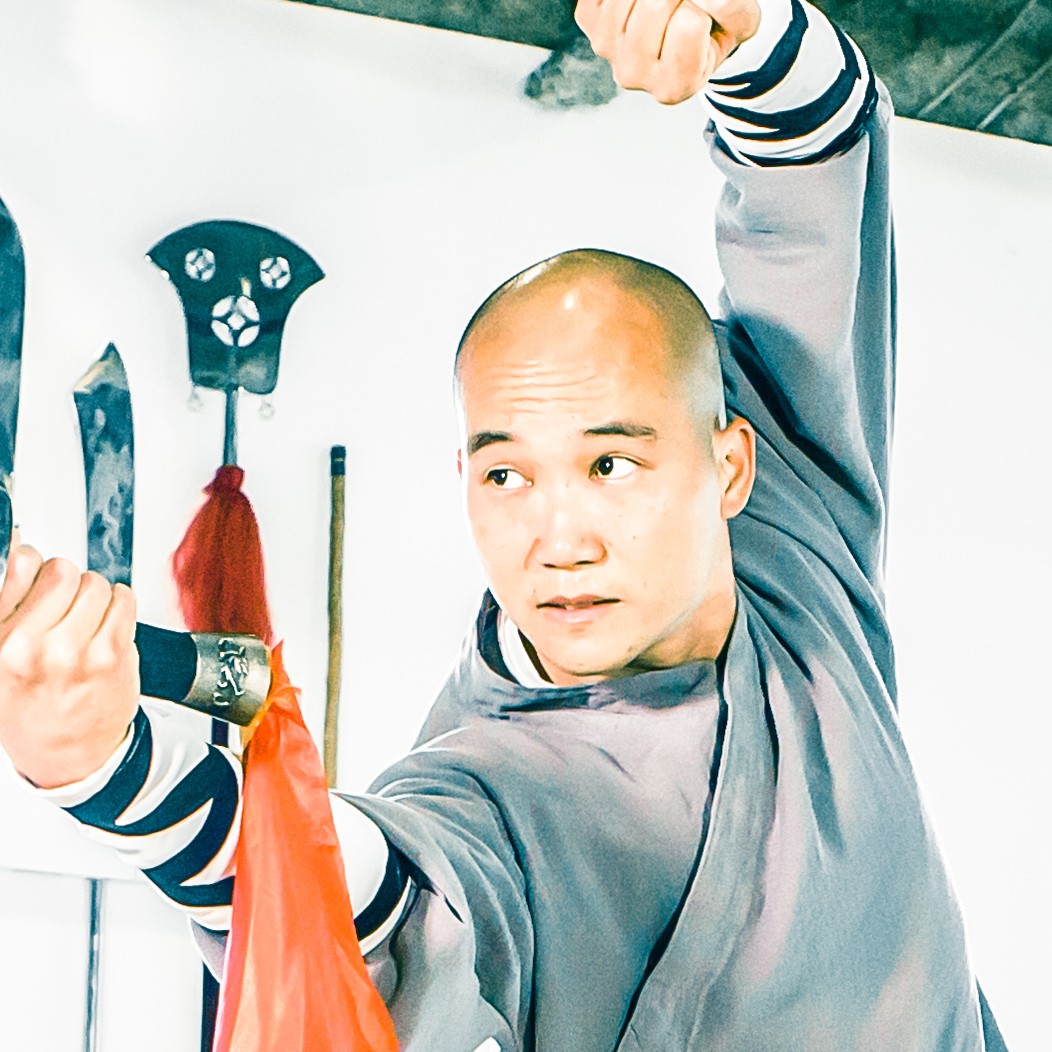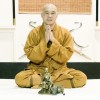What is Shaolin Meditation?

Shaolin Meditation is a discipline that stems from a philosophy called Chán 禪 (pronounced 'Ch - ah - n' in Mandarin Chinese with a rising tone). It’s well over 1,500 years old and was initially conceived by an Indian prince named Bodhidharma who first established Chán at the Shaolin Temple in Central North China around 500 AD. Since then, the ideas of Zen have evolved a little differently all over the world.
The word Chán 禪 is more commonly known as Zen and is derived from the word 'dhyāna' in Hinduism and Buddhism. A quick linguistics investigation reveals the word comes from the Sanskrit root word 'dhyai', which means 'to contemplate or meditate'.
Thus you could say the word Chán 禪 is a philosophy that requires the practice of meditation. That is, it's not Chán or Zen without meditation practice.
But when asked what Chán 禪 means, a Chán 禪 Master, would more than likely skirt around a precise definition. That's because its meaning to an individual evolves with time and practice.
That’s also why some Zen Masters may tell you that Chán 禪 means wisdom.
So what is the goal of the Shaolin Meditation Discipline? How can it help and is it important?
Shaolin Meditation is a unique discipline that teaches you Self-Wisdom. It helps you to see yourself and the world around you more clearly. In doing so, you can directly find peace and happiness.
Self-Wisdom is at the core of Chan-Dao , and so we coined the term 'Chan-Dao Self-Wisdom'. This is about understanding yourself, the reality and environment you are in, and your interactions.
There are three main parts of Self-Wisdom:
1) The Principles of Chan-Dao Self-Wisdom - helps people to understand themselves better by reflecting upon 4 different and interrelated ideas,
2) Shaolin Virtues - provides philosophical guidance that is easy to understand and test,
3) Meditation Techniques - helps students with techniques to practice stillness and introspection.
There are four key components to the Principles of Chan-Dao Self-Wisdom: 1) Ego-Self, 2) Perceptions, 3) Emotions, and 4) Subconscious. You can find a summary here: The Principles of Chan-Dao Self-Wisdom.
The Shaolin Virtues is a system of guidance to help people make better decisions for themselves. They include the Shaolin Virtues of Focus, Perseverance, Strive, Respect, Compassion, and Leadership. Wisdom is already built-in to these virtues, so people can follow them and use them to easily learn wisdom for themselves.
There are many Meditation Techniques that can be used to help students quiet their mind and find peace and stillness. The most obvious one is what I call Silent Sitting Meditation; however, it’s actually not the best place to start for most people. It’s at least worth trying to give you more perspective and experience.
Do you consider yourself emotional? Do you get distracted a lot? Do you find that sitting alone in silence is scary? If so, Silent Sitting Meditation may not be the best technique at this time. What you need is more mental stimulation and thus a form of Moving Meditation is better.
The spectrum of Shaolin Meditation techniques is quite broad. Here is one way that I like to classify them:
Still Meditation Techniques: Silent Sitting Meditation, Silent Standing Meditation (Lotus Posture or other Still Postures)
Simple Moving Meditation Techniques: Walking Meditation, Quiet Contemplation, Sitting or Standing Meditation with Music, and Shaolin Qigong such as the Eight Brocades Baduanjin Qigong form
Complex Moving Meditation Techniques: Shaolin Tai Chi, Shaolin Kung Fu
These all have their own merits.
Complex Moving Meditation is a great place to start because it requires the most mental and physical effort. This helps reduce the distractions of daily life problems and stresses. Shaolin tradition has Complex Moving Meditation techniques such as Shaolin Tai Chi and Shaolin Kung Fu. These integrate the philosophical ideals of Zen into the practices.
Simple Meditation is also a great place to start since it is a relatively simple exercise. Calm music lightly stimulates the mind and helps to level your emotions. This prepares you for deeper meditation practice. Qigong exercises work on breath, qi, and movement. Baduanjin, Yijinjing, and Shaolin Jingangong are all excellent qigong forms that help you to develop more energy and awareness, as well as control and relaxation. It complements lighter forms of meditation techniques.
Still Meditation Techniques are the toughest and considered the ‘deepest’ forms of meditation techniques because the aim is to have 'no thoughts' entering your mind. It’s beyond the scope of this article to talk about what ‘deepest’ means and why. It’s worth mentioning that the aim of ‘no thoughts’ is difficult. It is important to have a teacher help you understand what that means and how to get there.








 Written by Dao on Tuesday, December 29, 2020
Written by Dao on Tuesday, December 29, 2020











 YouTube
YouTube Instagram
Instagram Facebook
Facebook Discord
Discord